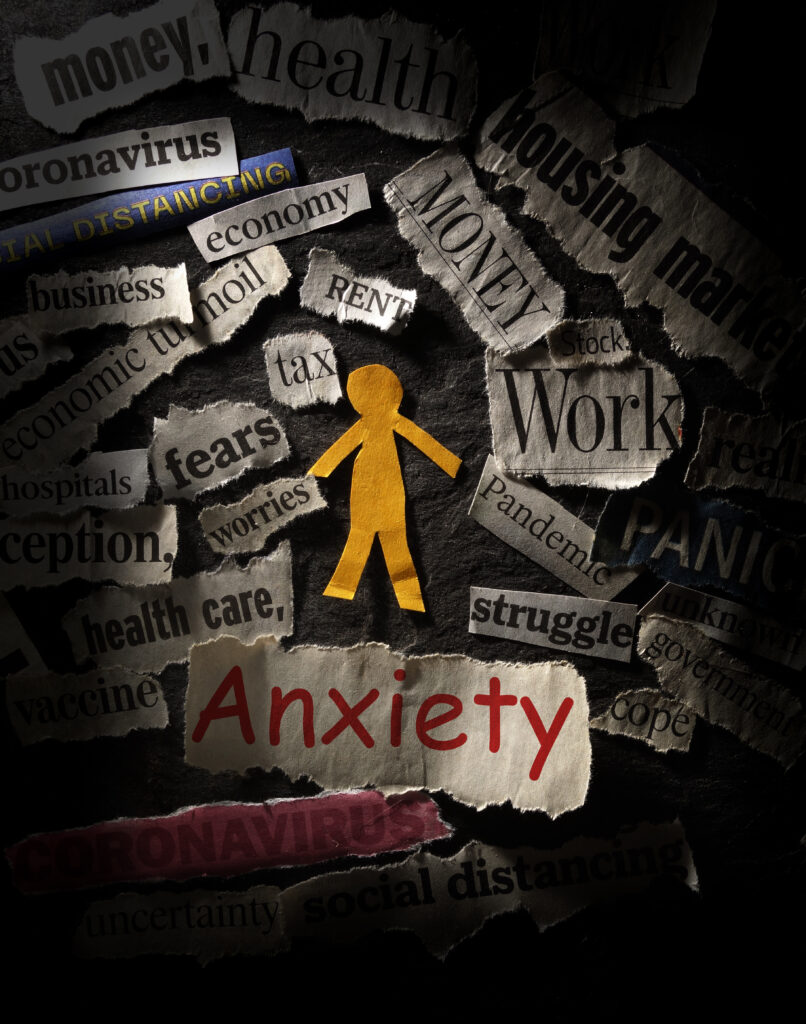Mental Health Foundation (MHF) called for the development and delivery of 10-year cross-governmental mental health strategies in each of the nations of the UK, with a strong focus on prevention as well as treatment in Mental Health Awareness Week 2023.
The foundation has chosen anxiety as this year’s Mental Health Awareness Week, which runs from 15 May to 21 May, and shared the findings of research conducted on anxiety in the UK.
MHF also considered the main ways of coping with anxiety and provided recommendations to government across the UK for preventing anxiety.
MHF said: “Feelings of anxiety are a natural and important human response to stress or perceived danger.
“They are feelings of unease, worry, or apprehension. Anxiety is a part of our body’s natural ‘fight or flight’ response that helps us react quickly to potential threats.
“Anxiety can become problematic if it is persistent over a long period of time, is overwhelming, or stops us from doing things we want or need to do.”
MHF added anxiety levels amongst population increased throughout the pandemic and have not yet dropped to the pre-pandemic levels.
In March 2023, the Mental Health Foundation worked with Opinium to conduct an online survey of 6,000 UK adults aged 18+ to look at anxiety in the UK population, its causes, and popular coping mechanisms.
One in five people anxious most or all of the time
The findings revealed nearly three-quarters of the population (73%) had felt anxious at least sometimes in the previous two weeks, with one in five people (20%) anxious most or all of the time.

Some groups of people were more likely to be affected by anxiety than others, according to research.
MHF said: “Nearly all young people (18 to 24 years) in our research (86%) had felt anxious in the previous two weeks.
“For over half (58%), this had stopped them undertaking day-to-day activities. Other groups more likely to report feeling anxious were:
single parents (89%), LGBTQ+ people (89%), carers (84%), 18 to 34-year-olds (86%), people from a minority ethnic community (84%), and people with a long-term physical health condition (LTC) (82%).”
Stigma and shame play a part in how people deal with their anxiety. Nearly half of the people in the MHF’s research (45%) were keeping their anxiety secret and nearly a third (30%) said they were not coping well with their anxiety.
Frontline workers less likely to seek mental health help
Research has shown that emergency services workers are twice as likely as the public to identify problems at work as the main cause of their mental health problems, but they are also significantly less likely to seek help, Police Mutual said. So mental health awareness becomes even more important for people working on the frontline such as security officers, police officers and emergency services workers.

Police Mutual provided some strategies to cope with anxiety, including breathing exercises, talking, keeping active, sleeping, good nutrition, doing something enjoyable, keeping a diary, being kind to oneself, listening to music and practicing mindfulness.
They also provided some tips for frontline workers:
“Think about your purpose: Be clear about why you are doing this job.
“Be clear on expectations: Make sure you know what is expected of you and whether it is realistic.
“Keep your boundaries: Establish clear boundaries between work and personal life, don’t take work home with you.
“Talk to colleagues: Make time to talk to your colleagues about your experiences and share fears and concerns.
“Value your own family and relationships: While work is important, your family and relationships need to be valued.
“Ask for help: If at times, life gets too much for you, it’s important that you speak to someone, this may be a family member or trusted friend, your GP, or a professional organisation, see the list at the end of this guide for details.”
Police Mutual said: “Making positive change is more important than ever, but it’s difficult to know where to start.
“Do one thing today, whether it’s going for a walk, learning a new skill, or doing something creative, taking the first steps to getting support for yourself, or reaching out to someone else, take the opportunity to do one thing during Mental Health Awareness Week.”
You can also reach out to various organisations to seek help for mental health:
For security industry professionals and medics
SIU – Security Rehabilitation Centre https://www.the-siu.org.uk
For serving and retired police officers
Police Care UK https://www.policecare.org.uk
Flint House – Police Rehabilitation Centre https://www.flinthouse.co.uk
For armed forces veterans
Combat Stress https://combatstress.org.uk/










